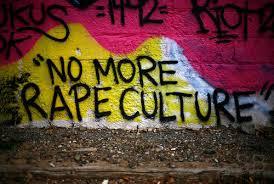I first heard about the opportunity to become a Companion in my Women’s Studies 101 class at UNC during spring of my first year in college. We went around the large lecture hall and students shared the various kinds of feminist community service they were involved in. One young woman spoke about her experience as a Companion with the Orange County Rape Crisis Center and how meaningful she found the work. Having seen the effects of sexual violence in my group of closest friends and knowing the feeling of helplessness when they had come to me with their stories, I knew I wanted to be able to give more, but I was unsure of what that would look like.
After class, I spoke with my classmate and felt sure that I wanted to become a Companion with the Center. Sixty hours of training seemed daunting at first, but as the weeks went on, I built relationships with my fellow trainees and staff, and I began to understand the impact of what I was learning. When we discuss sexual violence in a classroom or read about it or even hear about it on the news, it can seem abstract. So many myths surround the topic that is often difficult to discern how someone might experience rape in real life.

 Being introduced to the concept of rape culture changed everything. It changed my understanding of television, music, jokes, laws, and even language. When asked to write a primer for rape culture, I assumed it would be a simple task. Surely, I had been using the term for years, since taking a Women’s Studies 101 course at UNC. It took the better part of a week, however, to even start this overwhelming blog post.
Being introduced to the concept of rape culture changed everything. It changed my understanding of television, music, jokes, laws, and even language. When asked to write a primer for rape culture, I assumed it would be a simple task. Surely, I had been using the term for years, since taking a Women’s Studies 101 course at UNC. It took the better part of a week, however, to even start this overwhelming blog post. It’s time to dive a bit deeper into the nuances of sexual violence and how it differentially affects certain groups of people. Although I’ve been involved in the anti-violence movement for about 5 years, something you may not know is that I’ve also done a lot of work to support folks in our community who have developmental and/or intellectual disabilities. Having the opportunity to work with folks with an array of different levels of ability, both cognitively and physically, has only increased my passion for raising awareness about the intersection of sexual violence and disability status. Based on extensive research, we know that people with disabilities are at heightened risk to be sexually victimized. I hope to highlight some of what we know about this issue.
It’s time to dive a bit deeper into the nuances of sexual violence and how it differentially affects certain groups of people. Although I’ve been involved in the anti-violence movement for about 5 years, something you may not know is that I’ve also done a lot of work to support folks in our community who have developmental and/or intellectual disabilities. Having the opportunity to work with folks with an array of different levels of ability, both cognitively and physically, has only increased my passion for raising awareness about the intersection of sexual violence and disability status. Based on extensive research, we know that people with disabilities are at heightened risk to be sexually victimized. I hope to highlight some of what we know about this issue.

 The
The 
